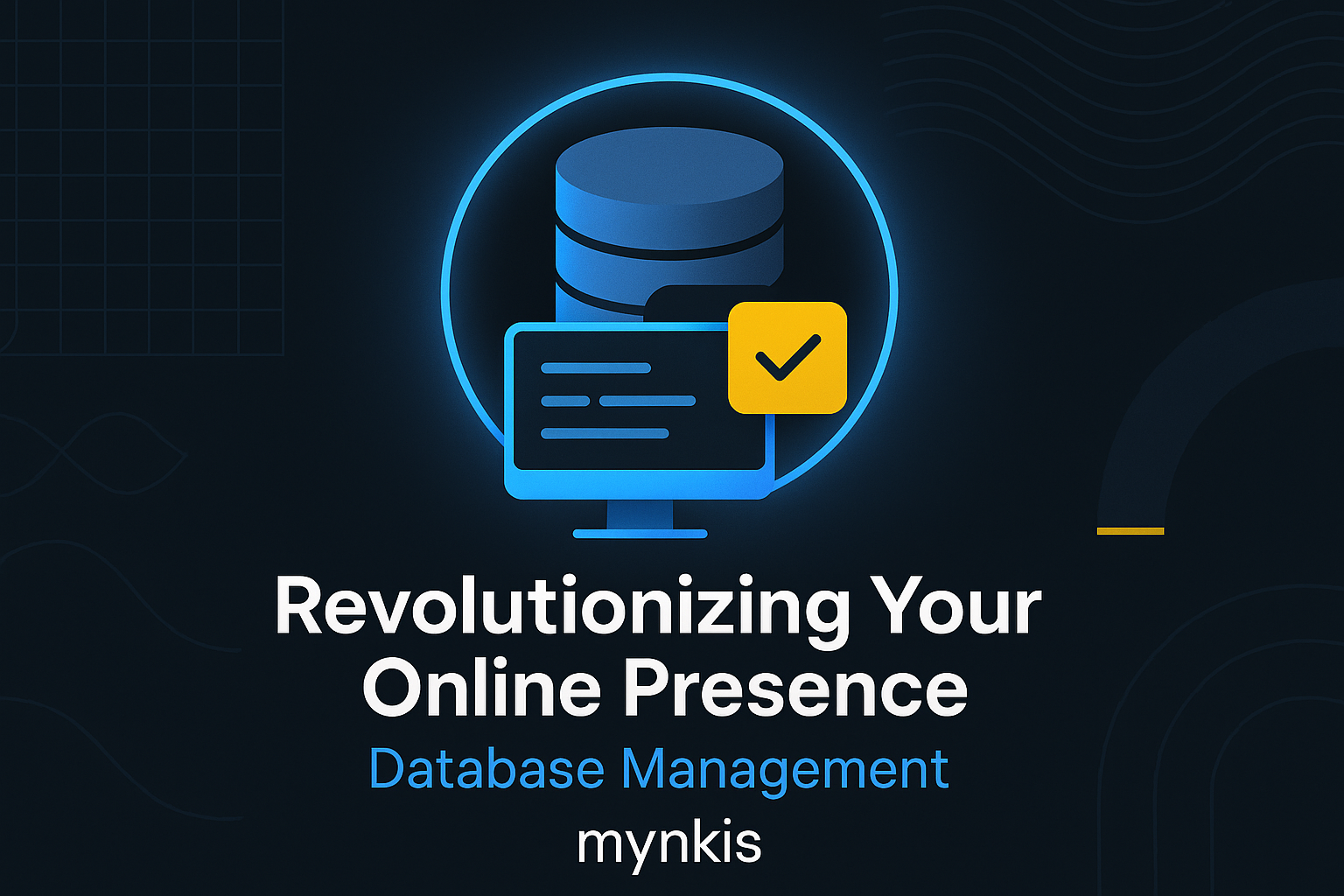Schedule a Demo
When crafting a website, one of the essential yet often overlooked components is database management. I've seen countless business owners prioritize design and user interface without realizing that the backend—the database—holds the key to truly effective, scalable websites. Effective database management optimizes how your data is stored, retrieved, and managed, ensuring your website performs smoothly under heavy traffic and scales as your business grows.
For business owners looking to establish a strong online presence, having a custom database solution is pivotal. In my experience, a well-designed database enhances the speed and performance of your site, which directly impacts your search engine rankings. Search engines favor fast-loading sites, and with a streamlined database, you're not just improving your user experience, you're also giving yourself an edge in search rankings. Moreover, a well-managed database supports dynamic content, which search engines love, enabling you to add and update content without compromising performance.
The choice of a Database Management System (DBMS) can profoundly influence your website's functionality. MySQL and PostgreSQL, for example, are known for their robustness and scalability, which are ideal for websites anticipating growth. However, NoSQL databases like MongoDB offer flexibility for websites handling unstructured data. Depending on your business needs, you might opt for SQL for complex queries or NoSQL for rapid data processing. In my projects, matching the DBMS to the specific use-case has been essential for delivering efficient and scalable websites.
Speed and efficiency are not just buzzwords; they are critical factors that can make or break your website. Efficient database queries ensure quick loading times, which keep visitors engaged and lower bounce rates. Indexing is a powerful tool here; by adding indexes to your frequently queried columns, you can dramatically improve response times. From my own projects, I've noticed that proper indexing strategies often result in significant performance enhancements. But it's also important to be mindful of over-indexing, as it can have the opposite effect by slowing down write operations.
As a business owner, you have a responsibility to protect your users' data. A strong database management strategy must include robust security measures to safeguard sensitive information. Encryption, regular security audits, and compliance with regulations like GDPR or CCPA are not optional—they're essential to maintain user trust and meet legal obligations. I've seen businesses lose customers due to data breaches, which underscores the necessity of a secure database management approach.
The capacity to serve dynamic content is a game-changer for SEO and user engagement. Modern websites increasingly rely on databases to deliver personalized and up-to-date information to users. Whether it's a personalized product recommendation or a real-time news feed, your database management system must be up to the task. In my collaborations with various businesses, those who've implemented dynamic content solutions have seen marked improvements in user retention and conversion rates.
Your website isn't just for today—it needs to accommodate your future growth as well. This is where scalability becomes paramount. Proper database management anticipates and prepares for increased data storage needs and user traffic. For entrepreneurs and managers eager to grow their online presence, setting up a scalable database architecture from the start ensures that your website can handle success without performance issues or downtimes.
SEO is integral to driving organic traffic to your website, and your database plays a crucial role here. Effective URL management through a well-designed database allows for cleaner, more SEO-friendly URLs. Managing meta-data effectively ensures that your pages are indexed correctly. Plus, quick data retrieval means your site can respond faster to search queries, which search engines, like Google, view favorably. From my observations, businesses that integrate their database strategies with SEO see a more cohesive and impactful growth trajectory.
Maintaining and monitoring your database should never be an afterthought. Regular updates and checks keep your database optimized and secure. From routine data backups to performance monitoring, staying proactive prevents potential issues from escalating. I recommend using tools that offer real-time monitoring, so you're always one step ahead of any problems, ensuring your website remains up and running efficiently.
Every aspect of your website’s user experience can be traced back to your database. A high-performing database leads to faster page load times, seamless navigation, and efficient data processing, all of which contribute to a positive user experience. In working with various c-level executives, I’ve emphasized how these elements translate into higher customer satisfaction and increased engagement. Your users expect a website to be quick and easy to use—a well-managed database ensures that happens.
Modern businesses thrive on data. Advanced analytics capabilities through a robust database allow you to track user behavior, website performance, and even marketing campaign effectiveness. This data-driven approach enables you to make informed decisions that enhance your website's functionality and your business's growth. Entrepreneurs with a keen eye on metrics have a strategic advantage in understanding what their customers want and how to deliver it effectively.
Investing in robust database management can seem like a significant expenditure, but it’s important to view it as a strategic investment rather than a cost. The benefits include improved website performance, better SEO rankings, and scalability that accommodates future growth. For managers on a budget, this means balancing the immediate financial outlay with the long-term gains. From my experience, businesses that thoughtfully manage their database investment see a notable return on investment in terms of performance and customer satisfaction.
What does all this theory look like in practice? I've seen many clients leverage effective database management to transform their online presence. One e-commerce business, for instance, saw their website load time drop by 50% after implementing optimized database queries and proper indexing. This resulted in a 20% increase in user engagement and conversion rates. Another case involved a content publisher who integrated dynamic content management through their database, leading to improved SEO and a notable uptick in organic traffic. These success stories illustrate the tangible benefits of proper database management.
